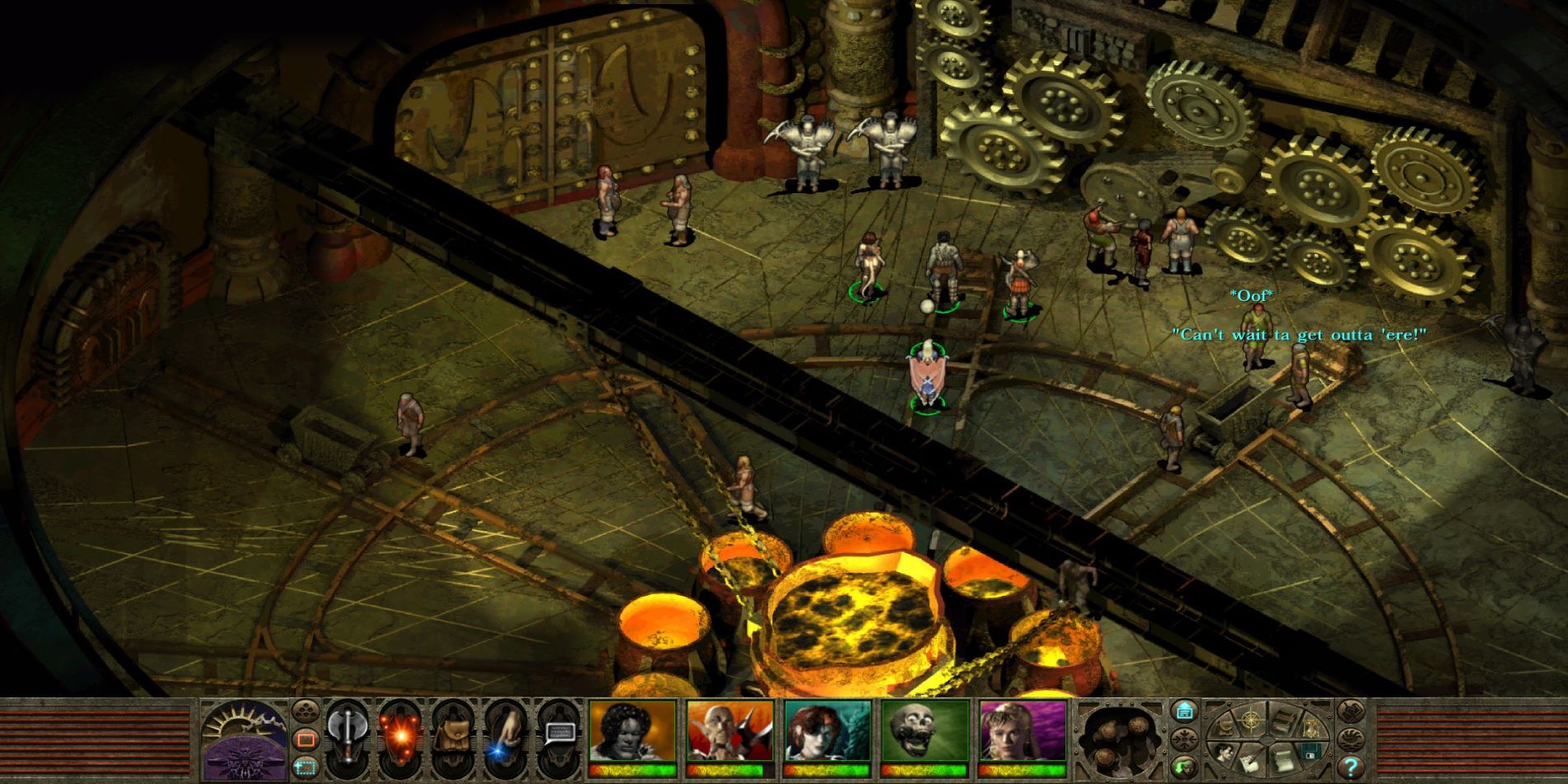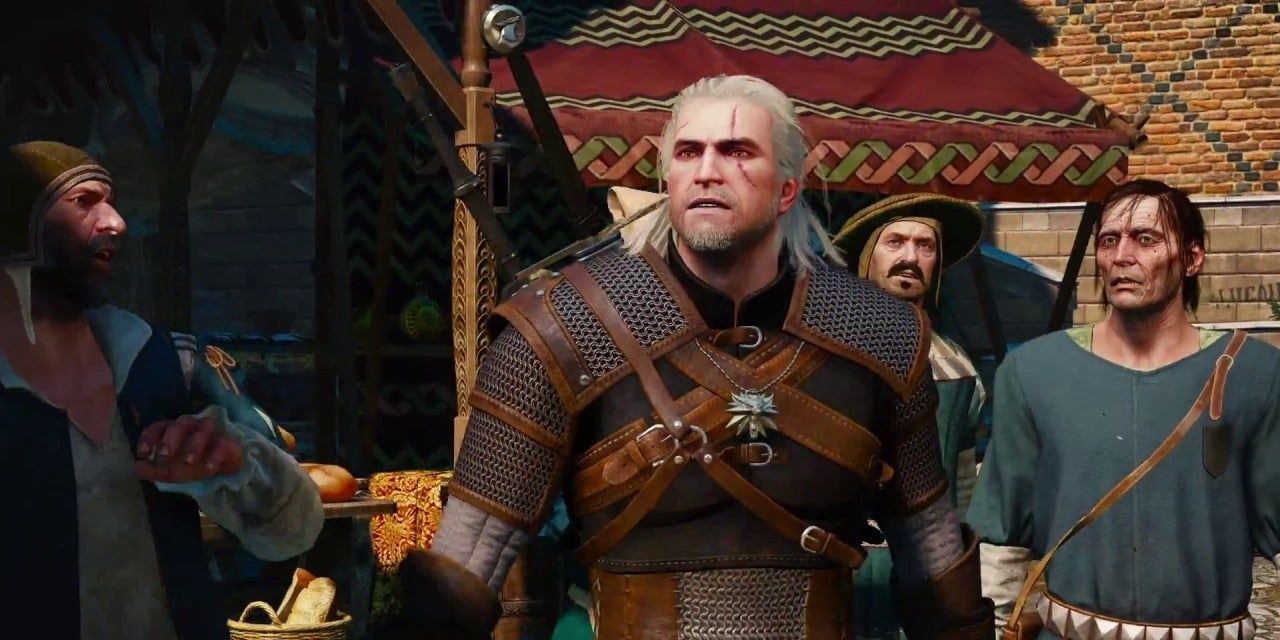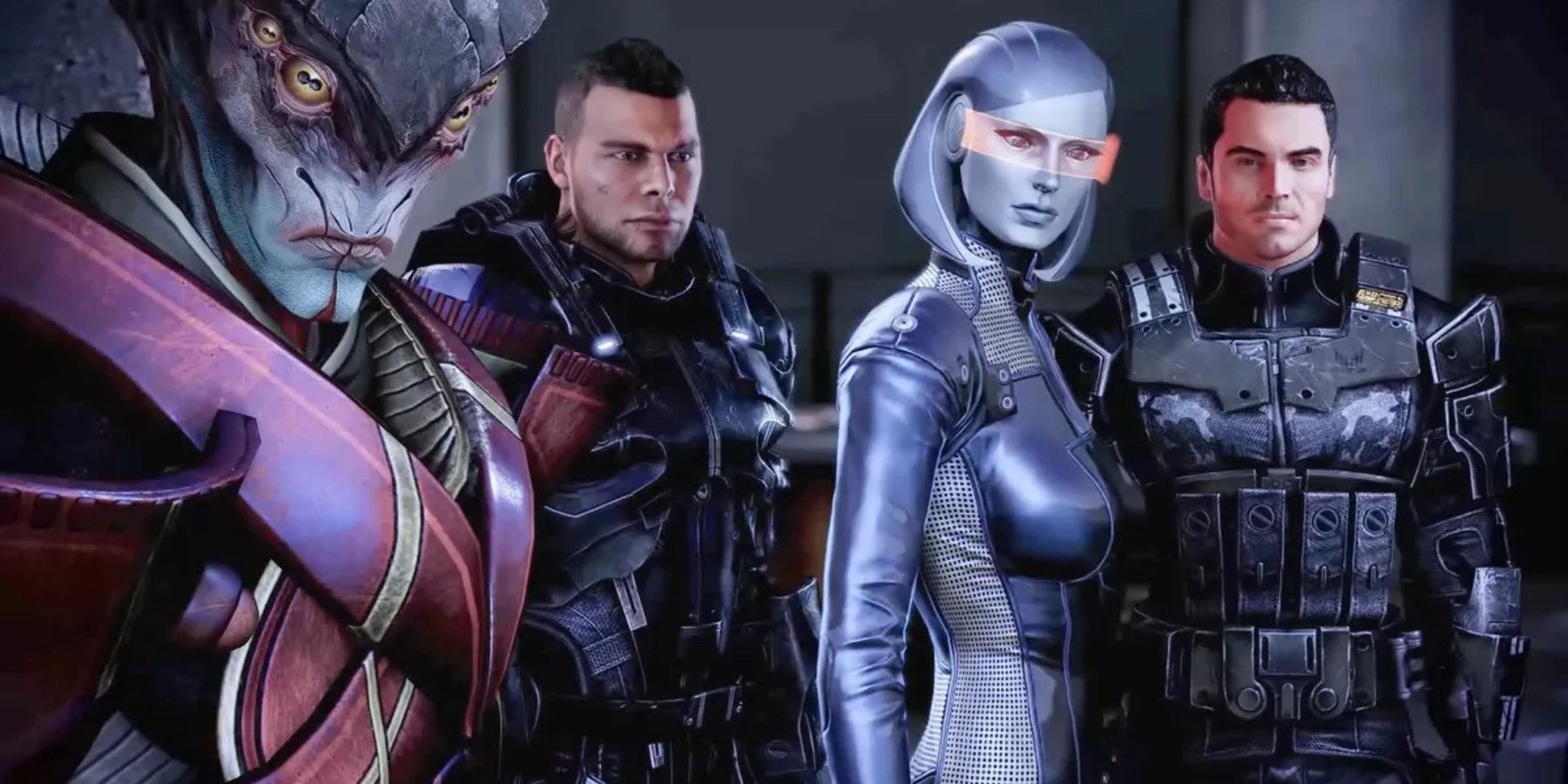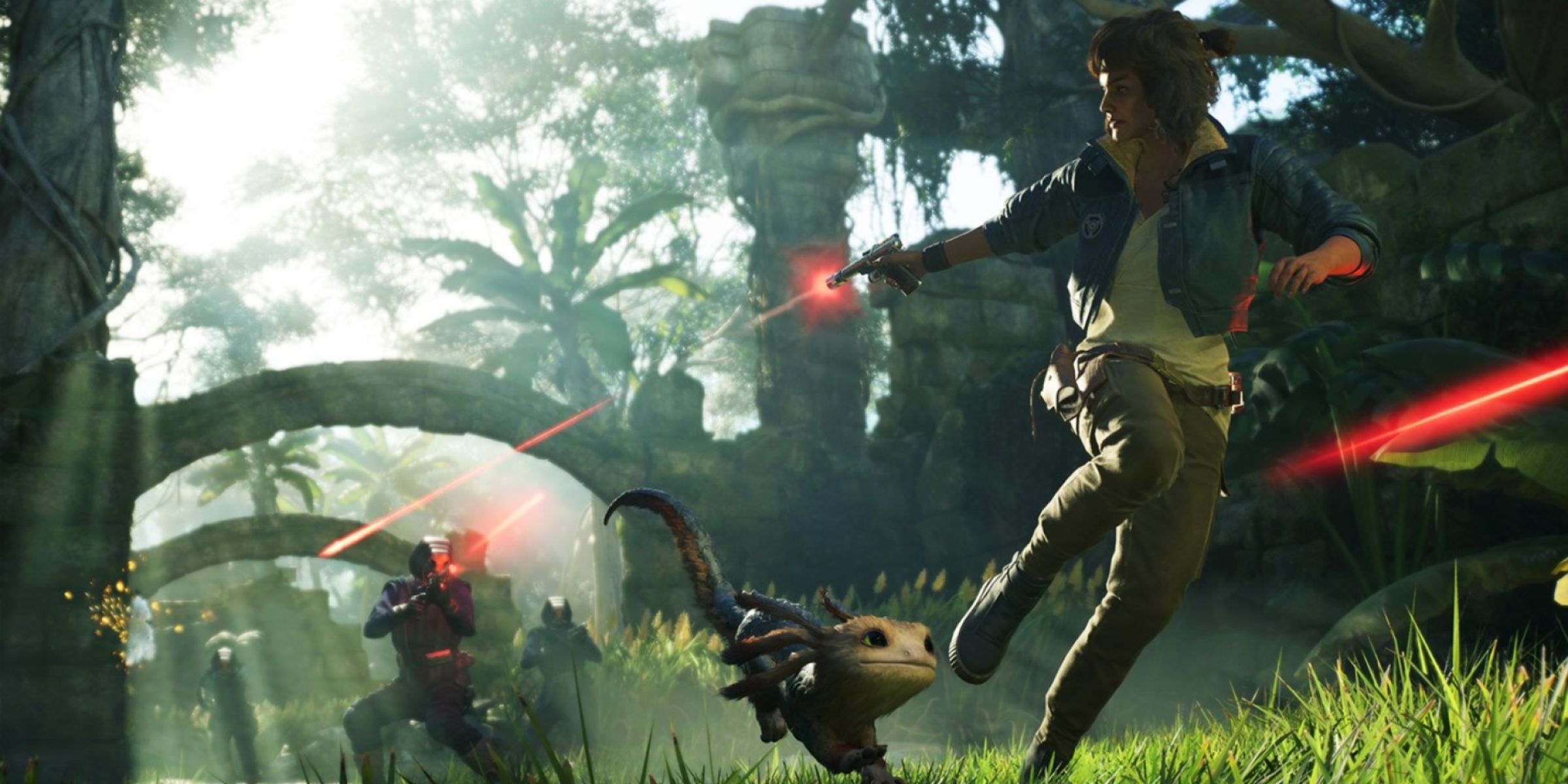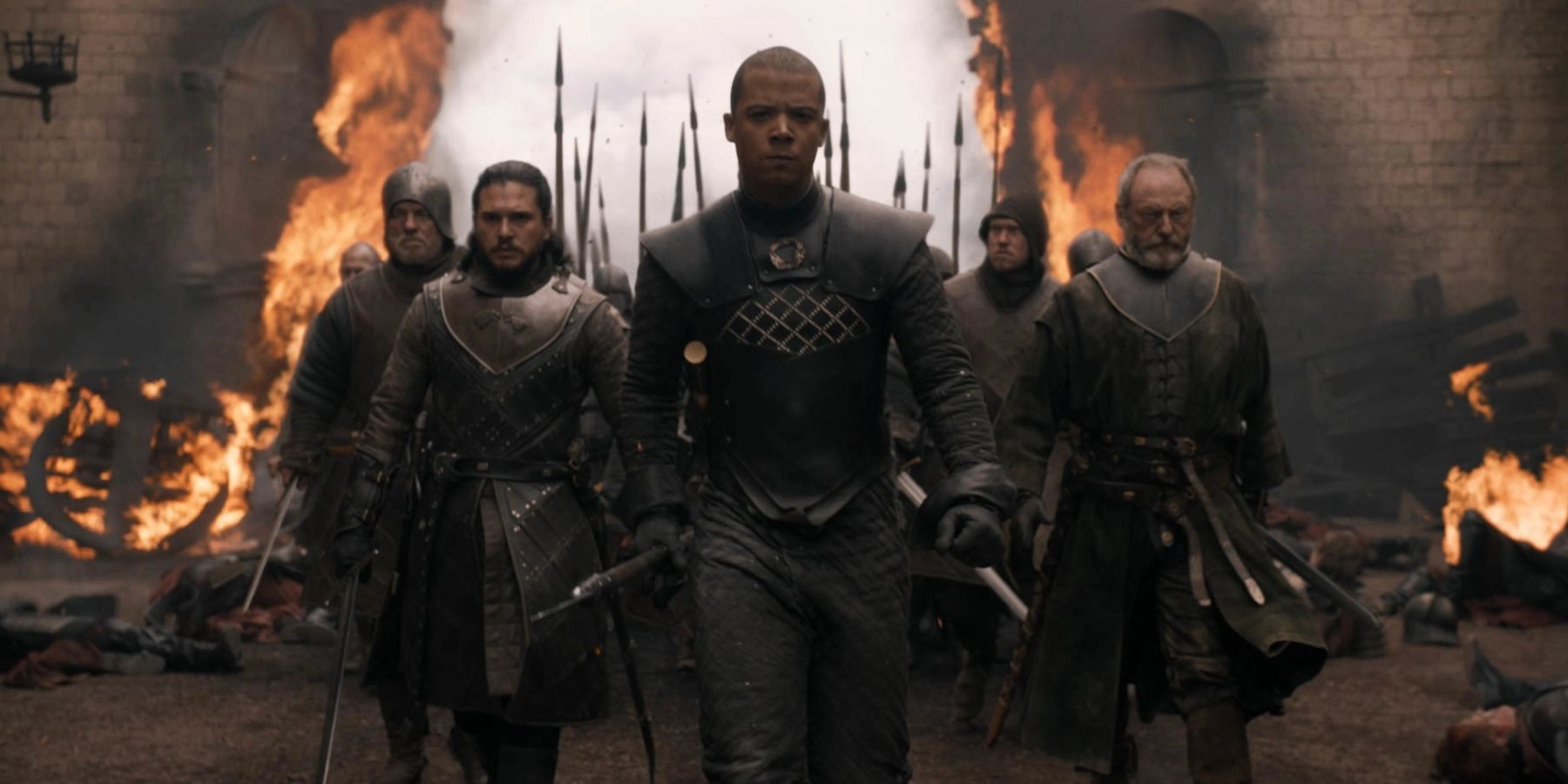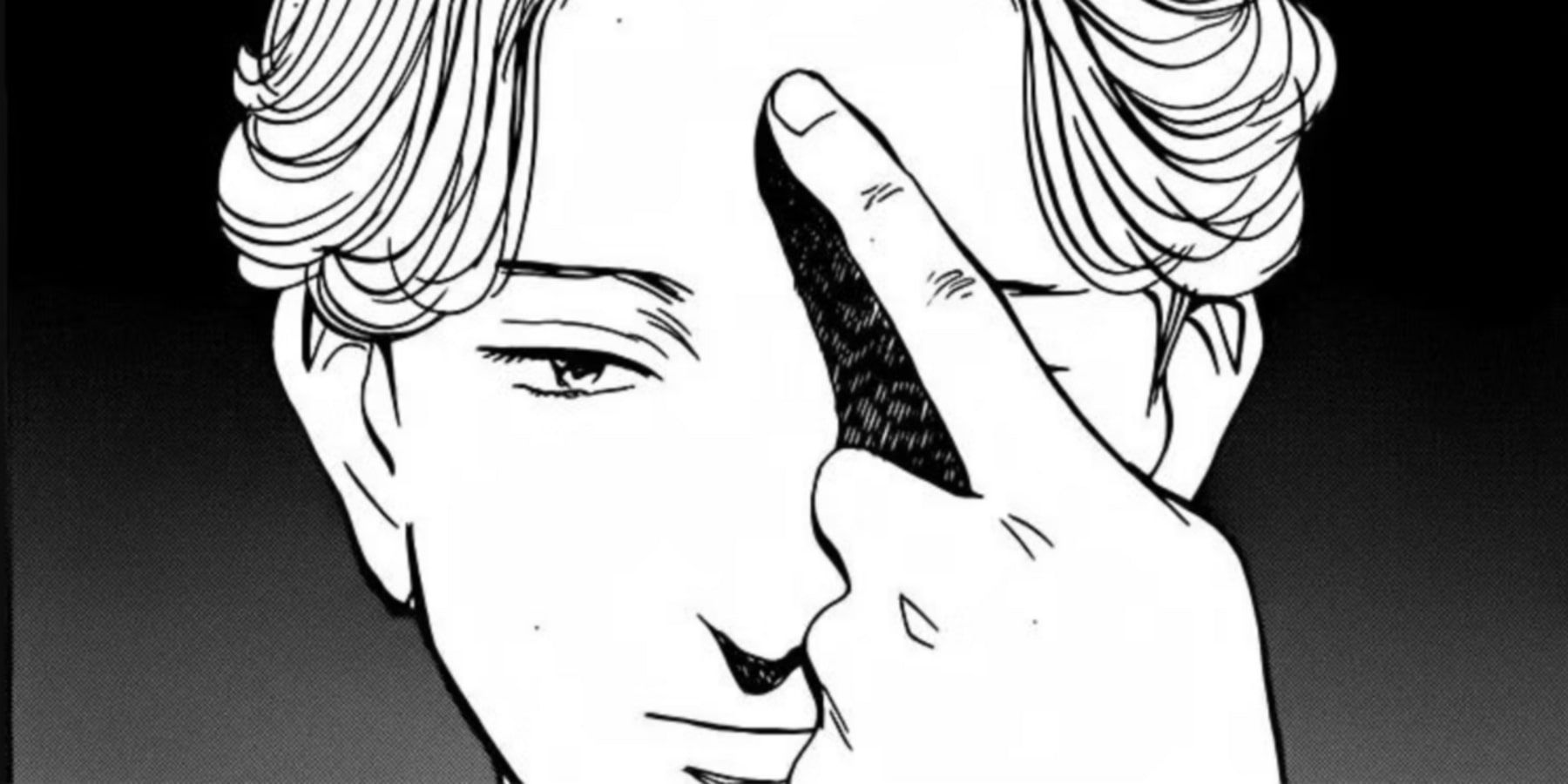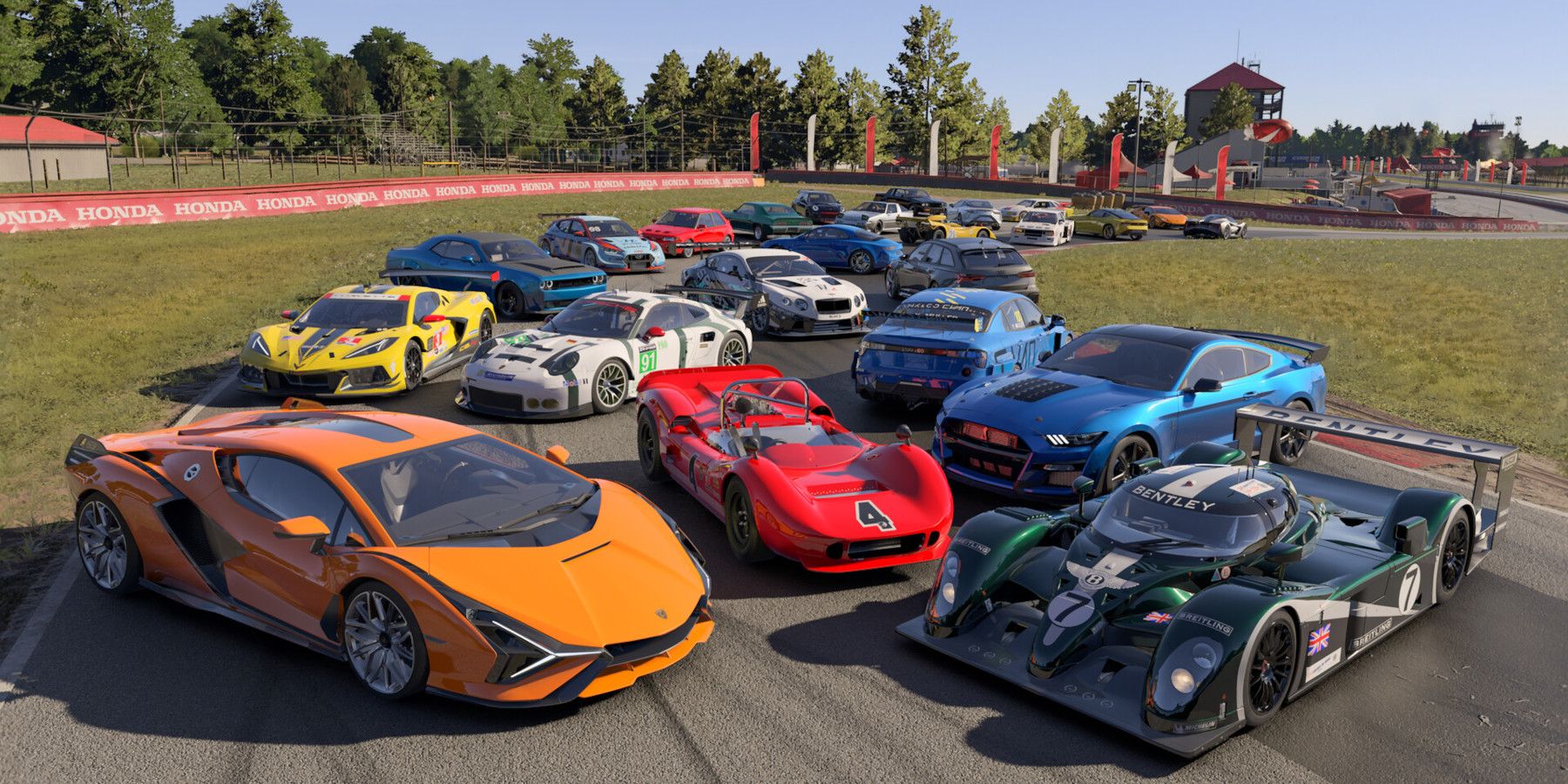Highlights
- RPGs offer rich world-building and immersive narratives, shaped by player choices for impactful reactive world events.
- Player decisions in RPGs, like alliances and narrative choices, directly influence the game world and outcomes.
- Reactive world events in RPGs, from faction alliances to environmental consequences, create endless fun and experimentation.
RPGs are known for their rich writing and detailed worlds, and include some of the best games in the industry when it comes to immersion and roleplaying. Every player can expect great characters and deep, intricate narratives when it comes to RPGs, but another essential part of the genre comes in the form of reactive world events. There’s nothing that quite creates the same sense of immersion as direct results from a player’s action – and that’s exactly what reactive world events entail.
10 RPG Games With The Best Writing
These amazing RPGs feature some of the best writing in the industry, creating gripping narratives and establishing memorable characters.
Whether it’s branching narrative choices, faction alliances, political decisions or completely random encounters, reactive world events are an essential part of what makes the RPG genre so good. It’s through the player’s decisions that the world around them is shaped. Whether for better or worse, the worlds in these video games will directly react to the player’s choices and gameplay. Some gamers might opt for a heroic route, creating ripples of positivity wherever they tread. Others might opt for a more chaotic route, plaguing their RPG worlds in complete darkness. There is endless fun and experimentation to be had when it comes to reactive world events in these fantastic RPGs.
8 Alpha Protocol
Metacritic Rating: 63
- Reactive world events: Faction alliances, narrative choices, fate of organization, weapon customizations
Whilst Alpha Protocol received mixed reviews when it launched back in 2010, it was a revelation when it came to reactive world events, world building and player-based consequences. This is a lesser known espionage title developed by Obsidian Entertainment where every choice has an impact on the overall game world. A small example is different weapon customization and unlocks based on how the player opts to experience the game, either more stealth-oriented or all guns blazing.
Depending on dialogue choices, relationships with various characters will vary significantly, ultimately determining whether many NPCs become allies or enemies. This then has consequential effects on the rest of the world, including faction alliances and reputations. Positive responses might lead to new missions or negative responses might lead to restricted access. Choices such as saving or assassinating political figures, or hushing or exposing major conspiracies will inevitably affect the ending of the game, and change the whole world as the player sees it. More uniquely, Alpha Protocol also features reactive world events where major organizations might shift their power dynamic based on the player’s decisions.
7 The Outer Worlds
Metacritic Rating: 85
The Outer Worlds
- Released
- October 25, 2019
- Reactive world events: Faction alliances, player reputation, narrative choices, environmental consequences
The Outer Worlds is a fantastic sci-fi RPG that gives the player complete freedom in how they approach the game. Developed by Obsidian Entertainment, The Outer World presents a dystopian future focused on consumerism and corporate authority. This is a great title that perfectly uses reactive world events to impact both the narrative and gameplay. There are multiple forms of reactive world events present, but one of the best is the environmental consequences. Players will often see increased or lowered military presence based on their actions.

8 Greatest Sci-Fi RPGs
Not all RPGs are set in worlds of fantasy with magic and dragons. These are the greatest RPGs set in science fiction universes.
The player can choose to align themselves with a number of different factions, where their alliance choice will ultimately affect trade opportunities and companion friendship levels. There are also multiple choices presented to the player throughout both the main narrative and various side quests. The fate of multiple characters, and sometimes whole settlements, often hangs on these choices. Further reactive world events include consequences for the player’s reputation, where a higher reputation might mean better shop discounts, or increased hostility from NPCs if they have a lower reputation.
6 Fallout: New Vegas
Metacritic Rating: 84
Fallout: New Vegas
- Released
- October 19, 2010
- Reactive world events: Environmental consequences, companion loyalties/friendship, narrative choices, settlement consequences
All the Fallout titles include reactive world events in some shape or format, but it’s Fallout: New Vegas that carries the most weight and utilizes the most opportunities to present these. As with most RPG titles, narrative choices will ultimately affect the whole world, but Fallout: New Vegas delivers an even more nuanced take on reactive world events.
Quests, choices and endings are riddled with moral ambiguity, so the player might often be unsure whether they have made good or bad choices throughout their gameplay. It’s rare that players will complete a quest without a reactive world event playing out, often resulting in the untimely demise of certain NPCs. Decisions will often present environmental reactions, turning settlements against or in alliance with the player. This is an intricate, detailed world where the player actively contributes to its building and lore.
5 Dragon Age: Origins
Metacritic Rating: 86
Dragon Age Origins
- Released
- November 3, 2009
- Reactive world events: Origin stories, companion relationships, narrative choices, faction alliances
Dragon Age: Origins presents a unique way of approaching reactive world events from the very start of the game – the origin system. In this first entry in the Dragon Age franchise, players can choose their own race and class, ranging from Humans to Elves and Dwarves. Each of these has an individual story and changes the way the world reacts to the player, including interactions with NPCs.
10 RPGs With The Most Replayabilty
These RPGs offer so much freedom in terms of choice that it’s hard not to want to replay them for their unique stories and fun gameplay.
On a broader scale, Dragon Age: Origins presents multiple choices for the player to make which will directly affect the world around them. Forcing the player to choose between factions and ideologies presents the player with many difficult choices, all of which can change the ending of the narrative and the way the world treats the player. It’s an ever-evolving reactive world that is written as the player progresses.
4 Fable 2
Metacritic Rating: 89
Fable 2
- Released
- October 21, 2008
- Reactive world events: Town/NPC reactions, environmental consequences, economic impacts, narrative choices
Fable 2 is the critically acclaimed sequel to Fable and expanded on its predecessor in many great ways. One difference, in particular, was its greater focus on reactive world events, with Fable 2 creating a living and breathing world that directly changes based on the player’s choices and playstyle. These events include regular consequences, such as branching narrative choices and different quests, which are often found in the genre. However, Fable 2 introduced further impacting mechanics to RPGs.
Some of the best examples of reactive world events in Fable 2 come in the form of both environmental and economic impacts. In the sequel, players can buy their own property and essentially manage a business, which in turn can ultimately affect the whole economy of a town based on how a player chooses to rent, buy or sell properties. Fable 2 also presents the player with unique choices that directly ripple throughout the world. One such choice involves choosing to restore either the Temple of Light or Shadows. One will greatly benefit the town of Oakfield, the other, well, much less so! It’s a great use of a reactive world event that will stick with the player for the rest of the game.
3 Planescape: Torment
Metacritic Rating: 91
Planescape: Torment
- Released
- December 12, 1999
- Developer(s)
- Black Isle Studios
- Reactive world events: Narrative choices, companion interactions, faction choices, moral alignment
One of the best RPG titles ever made, Planescape: Torment is a fantastic example of how to effectively utilize reactive world events in a video game. This is a deep, multi-faceted and philosophical RPG directly revolving around player choices and consequences, and how the game world reacts to them. One of the best examples of reactive world events here is how players might choose to restore power in the Sigil. Based on these choices, new areas might open up and NPCs will treat the player differently.
Planescape: Torment features one of the most extensive dialogue trees in gaming, effectively allowing players to shape The Nameless One’s (protagonist) personality. This can affect the world through means of positive or negative reputations. If players have a lawful or evil alignment, the world will react in drastically different manners, ranging from different quest outcomes to hiring different companions. Each faction in the game has its own ideology which the player can choose to align with or discard. Certain alliances with factions can either benefit the overall world, or negatively impact the game by increasing enemies.
2 The Witcher 3: Wild Hunt
Metacritic Rating: 92
- Reactive world events: Environmental impact, narrative choices, player reputation, relationships and romance
The Witcher 3: Wild Hunt presents an array of reactive world events that spawn from the player’s decisions. One of the best RPGs made in recent years, players have grown extremely fond of Geralt and his incredible adventures, no doubt because of the rich and detailed world filled with branching narratives and unique quests. There are major decisions that drastically affect the outcome of the central narrative, whether for better or worse.
The choices and consequences are often severe, and many players will often regret their decisions almost immediately. Some great examples of how the world reacts are centered around the fate of Whoreson Junior and the leadership that resumes over Skellige. Sparing or killing Whoreson Junior will greatly impact the overall crime world in Novigrad, whilst the decisions made during the King’s Gambit questline will determine who rules the land of Skellige, an important part of the latter narrative. Whilst players progress through the game, their general approach will also cause the world to react. Killing or sparing certain monsters can influence the public perception of witchers. Clearing bandit camps can lead to new trade opportunities and allies. The reactive open world is constant and greatly detailed.
1 Mass Effect 3
Metacritic Rating: 93
- Reactive world events: Intricate narrative choices, political repercussions, galaxy-wide conflicts, relationships/romance
If there has ever been an RPG franchise most intricately connected to reactive world events, it would most certainly be the Mass Effect series. It’s Mass Effect 3 in particular that focuses the greatest amount on these events, not because it’s necessarily the best title in the franchise, but because it’s the culmination of the entire trilogy.
Every choice the player makes throughout all 3 entries is felt throughout the narrative in this conclusion. No matter if players have opted for paragon or renegade choices, reactive world events will play out regardless. From political tensions, alliances, and enemies, to full-scale wars, invasions, and character deaths, the reactive world events presented in this masterful franchise are effective, emotional, and incredibly impactful. There is weight to each and every decision the player makes, and these decisions ripple throughout the universe like the butterfly effect.

10 RPG Games With Surreal And Dreamlike Worlds
Players will dive into a breathtaking RPG world with these surreal landscapes and dreamlike settings.
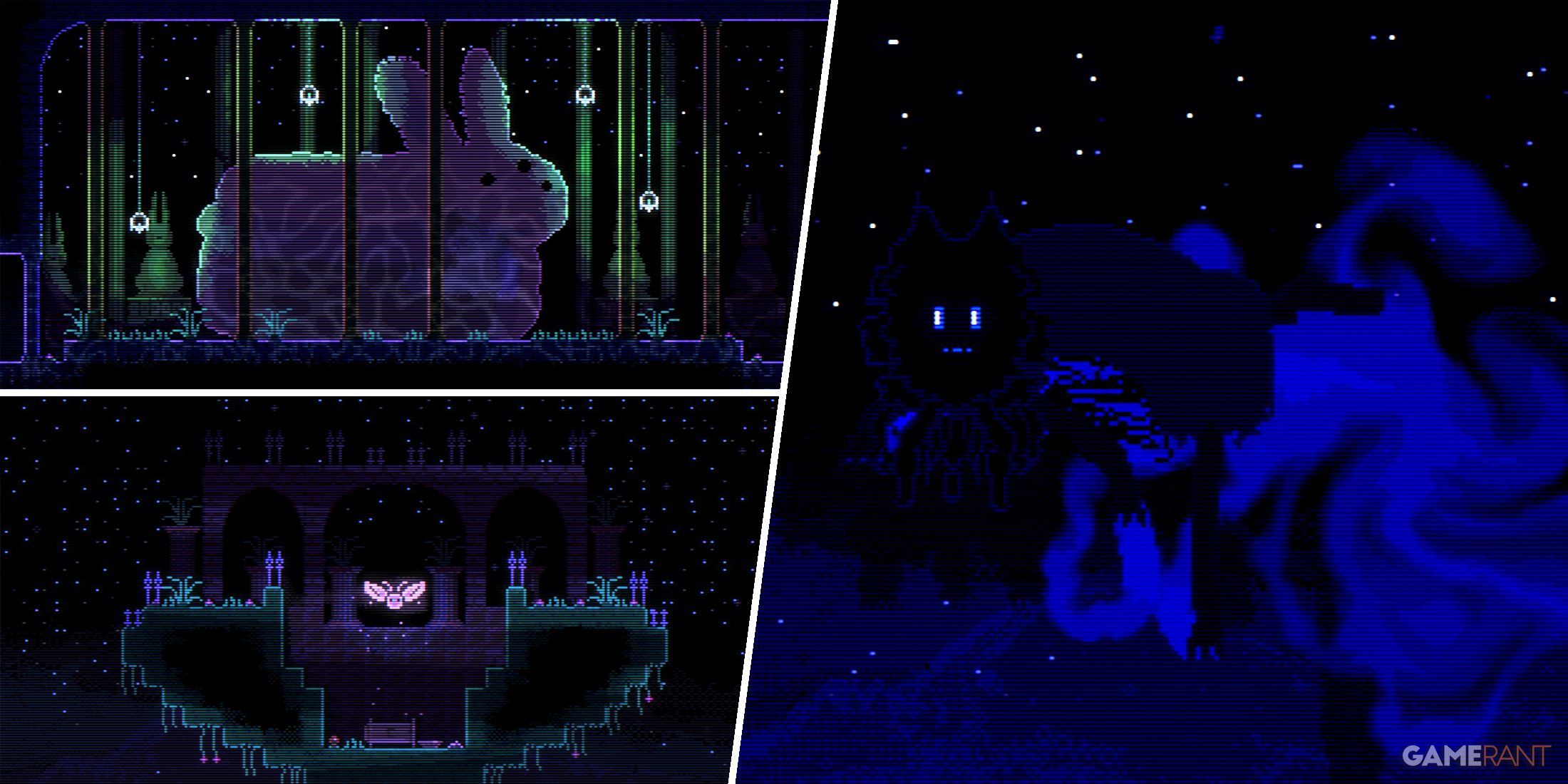
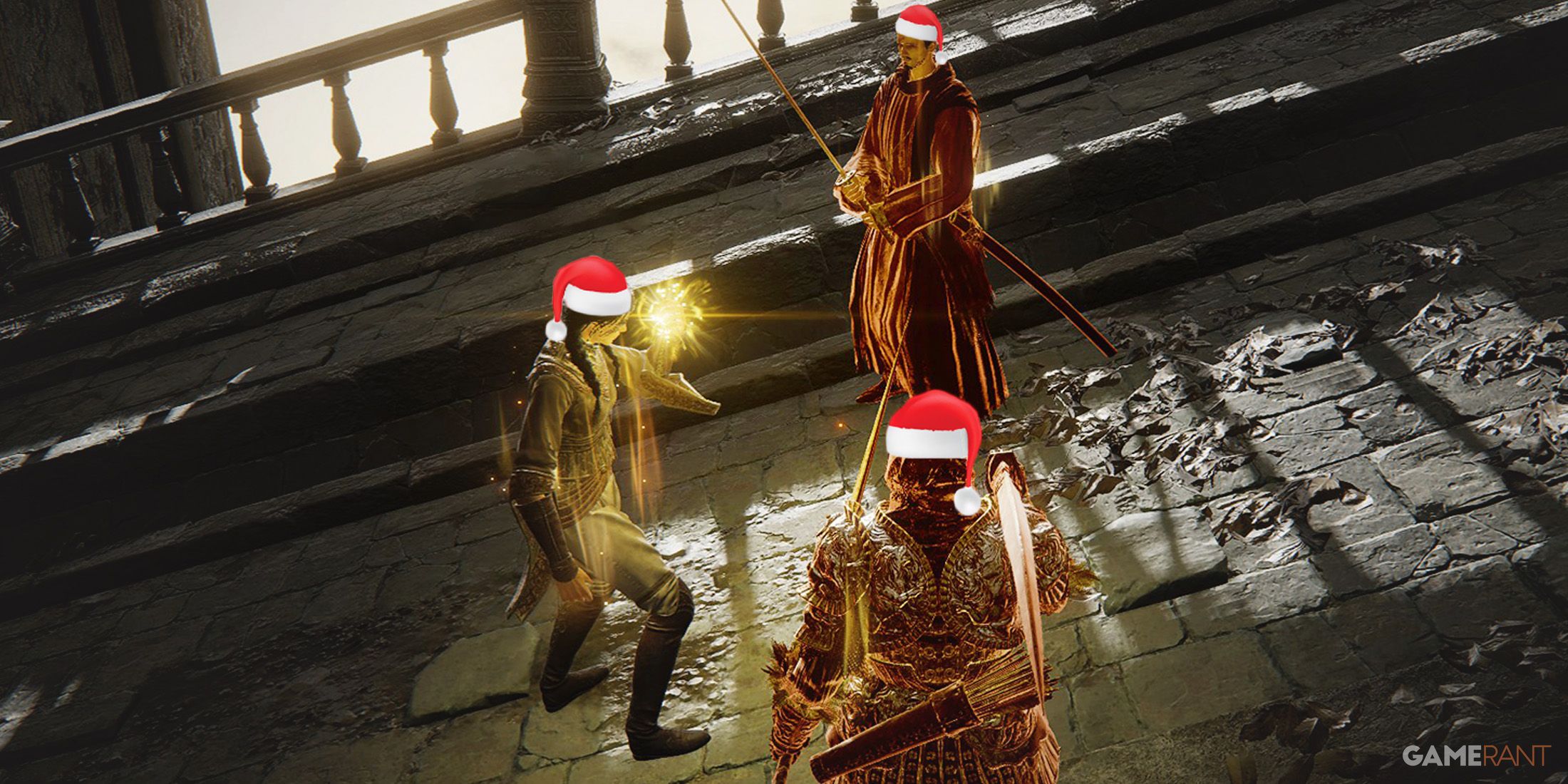
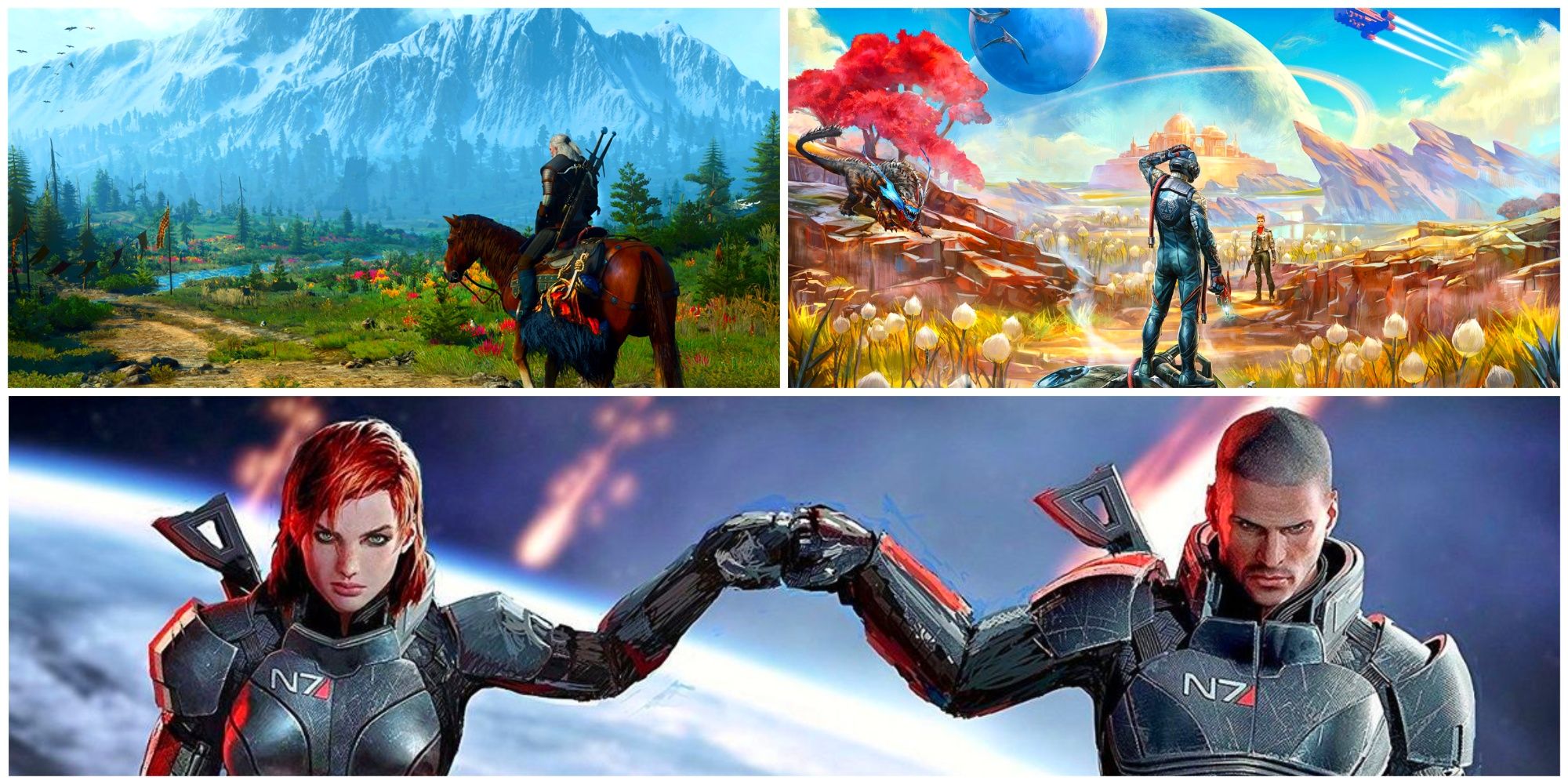

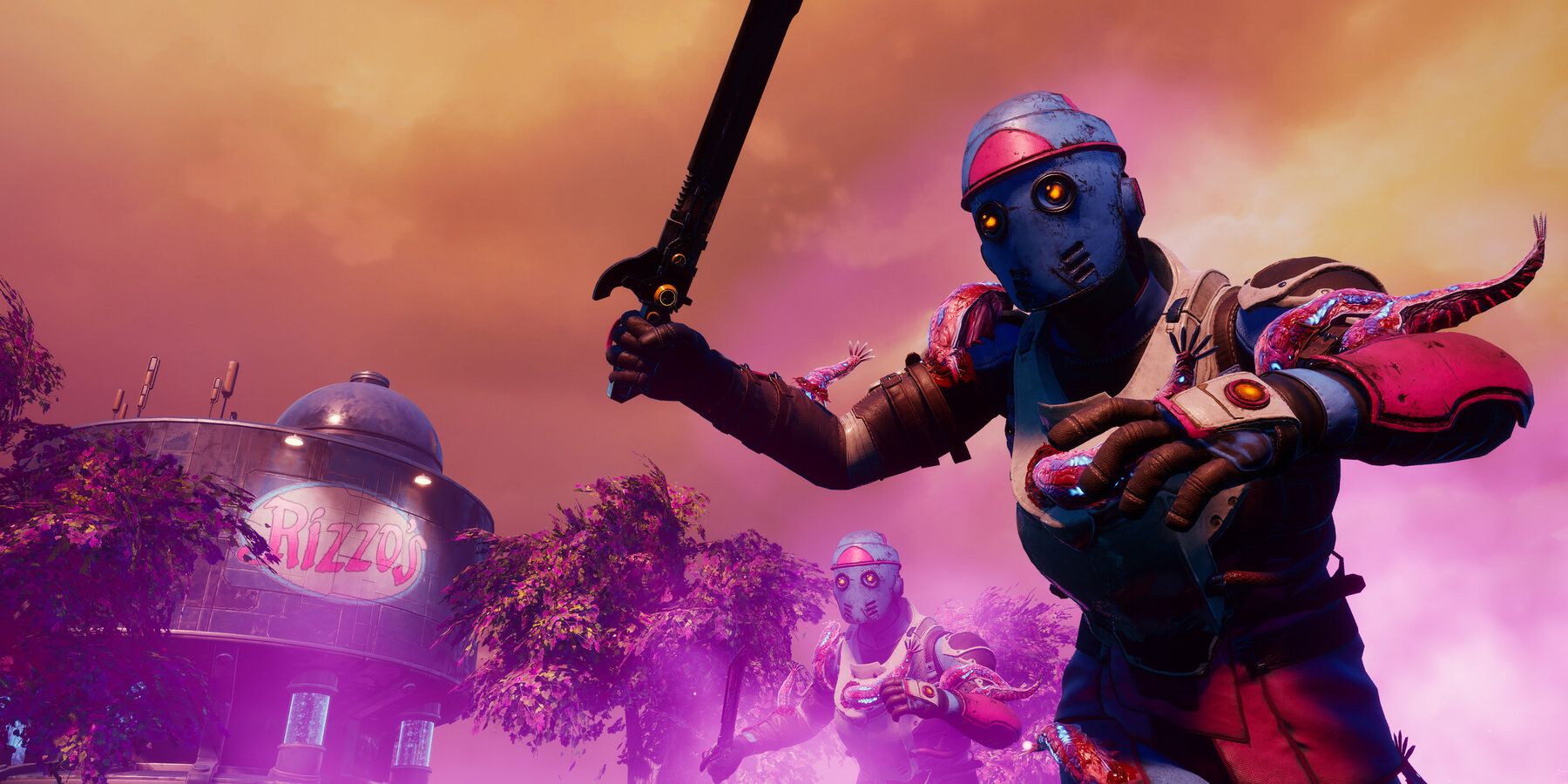
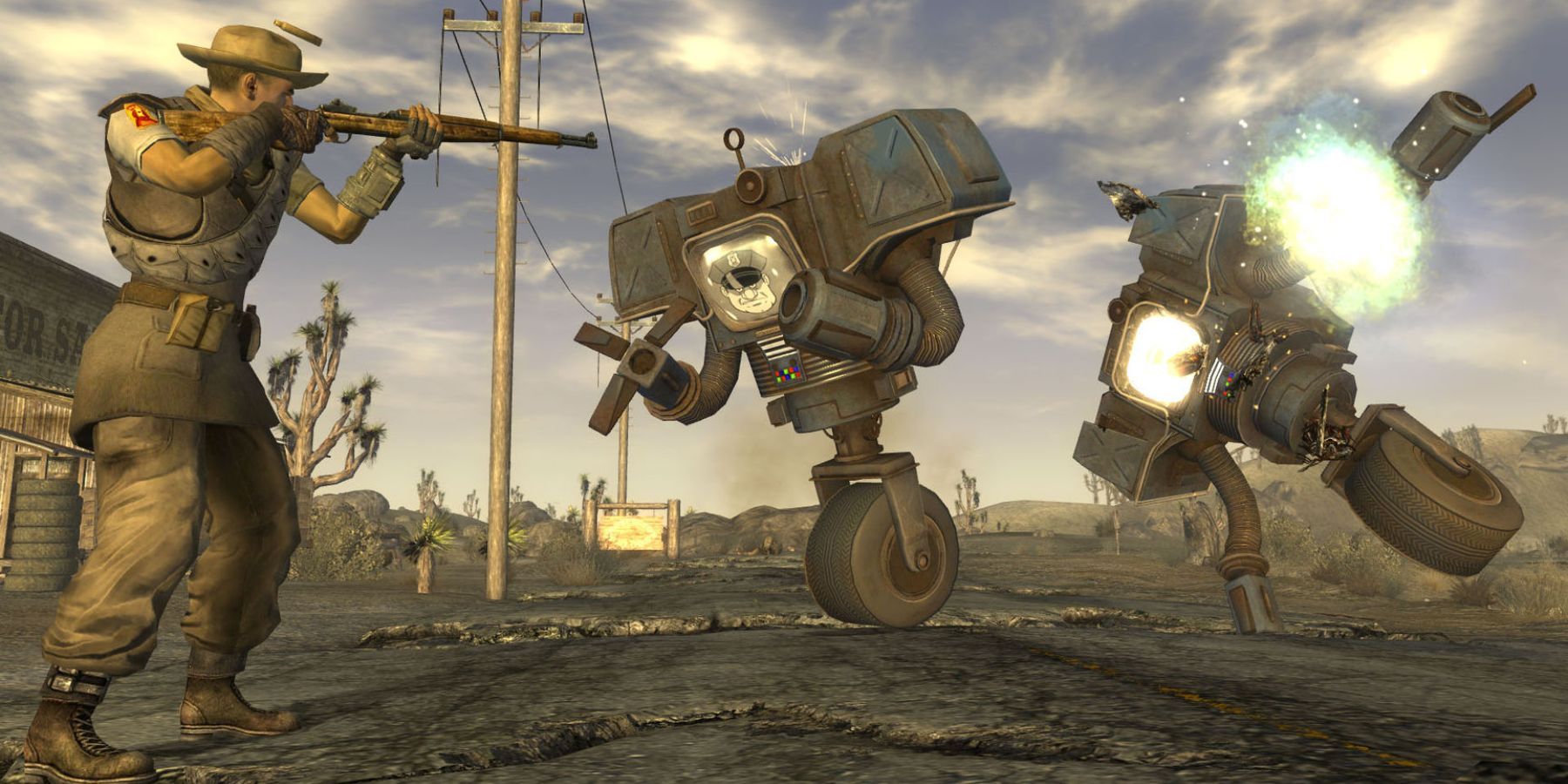
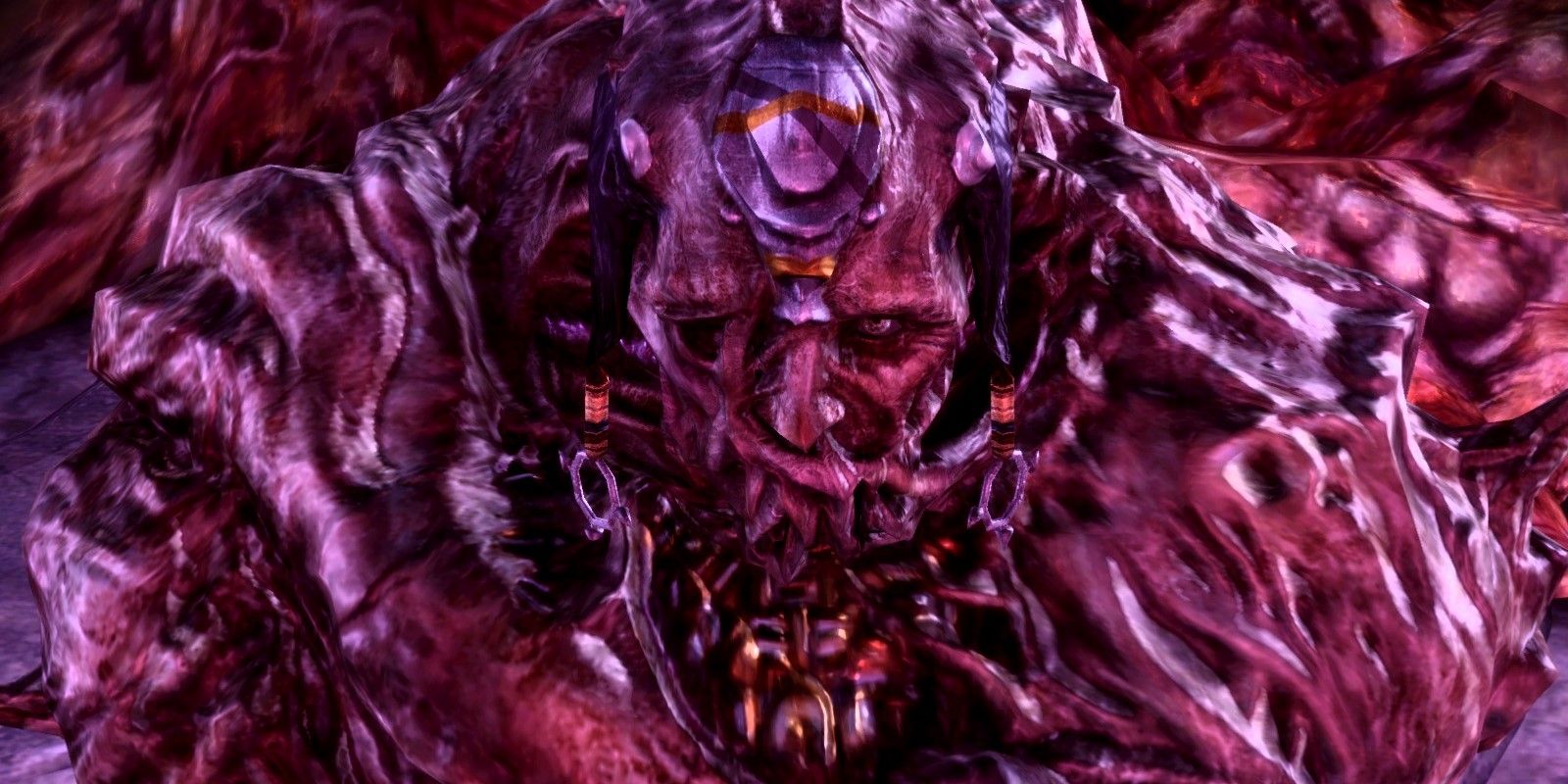
.jpg)
